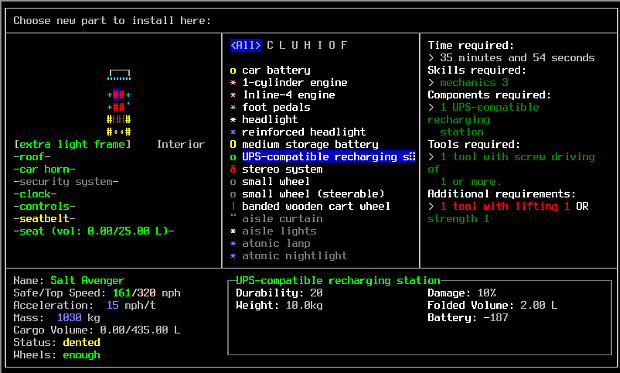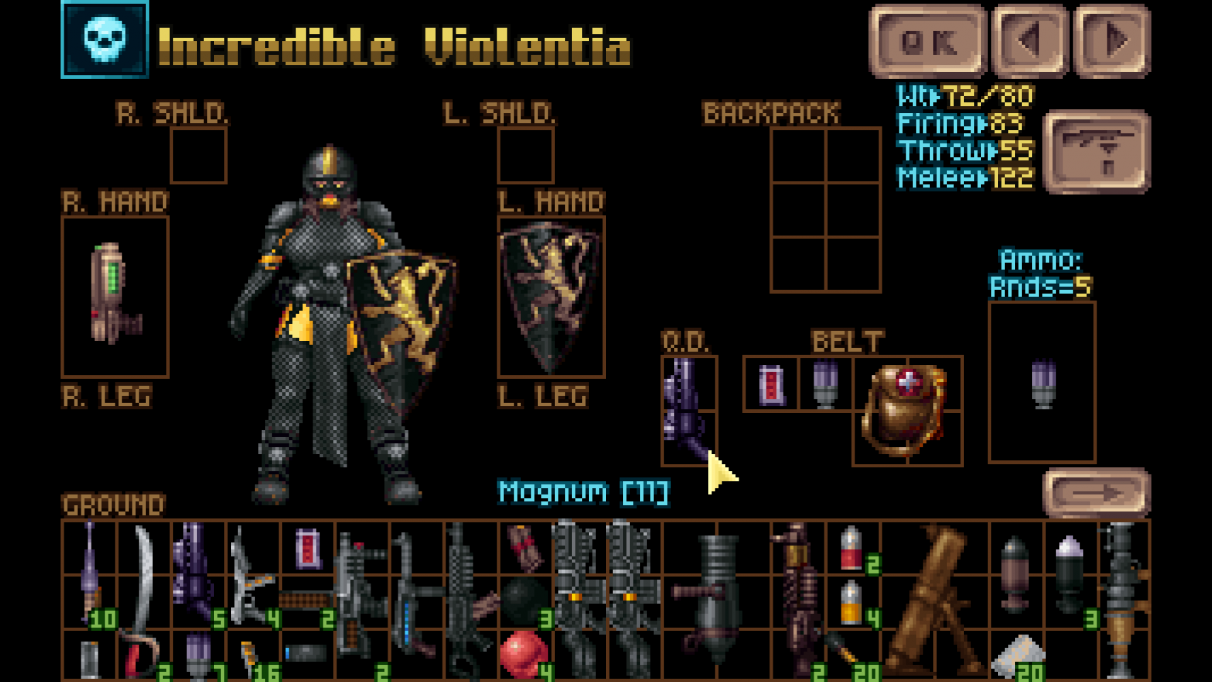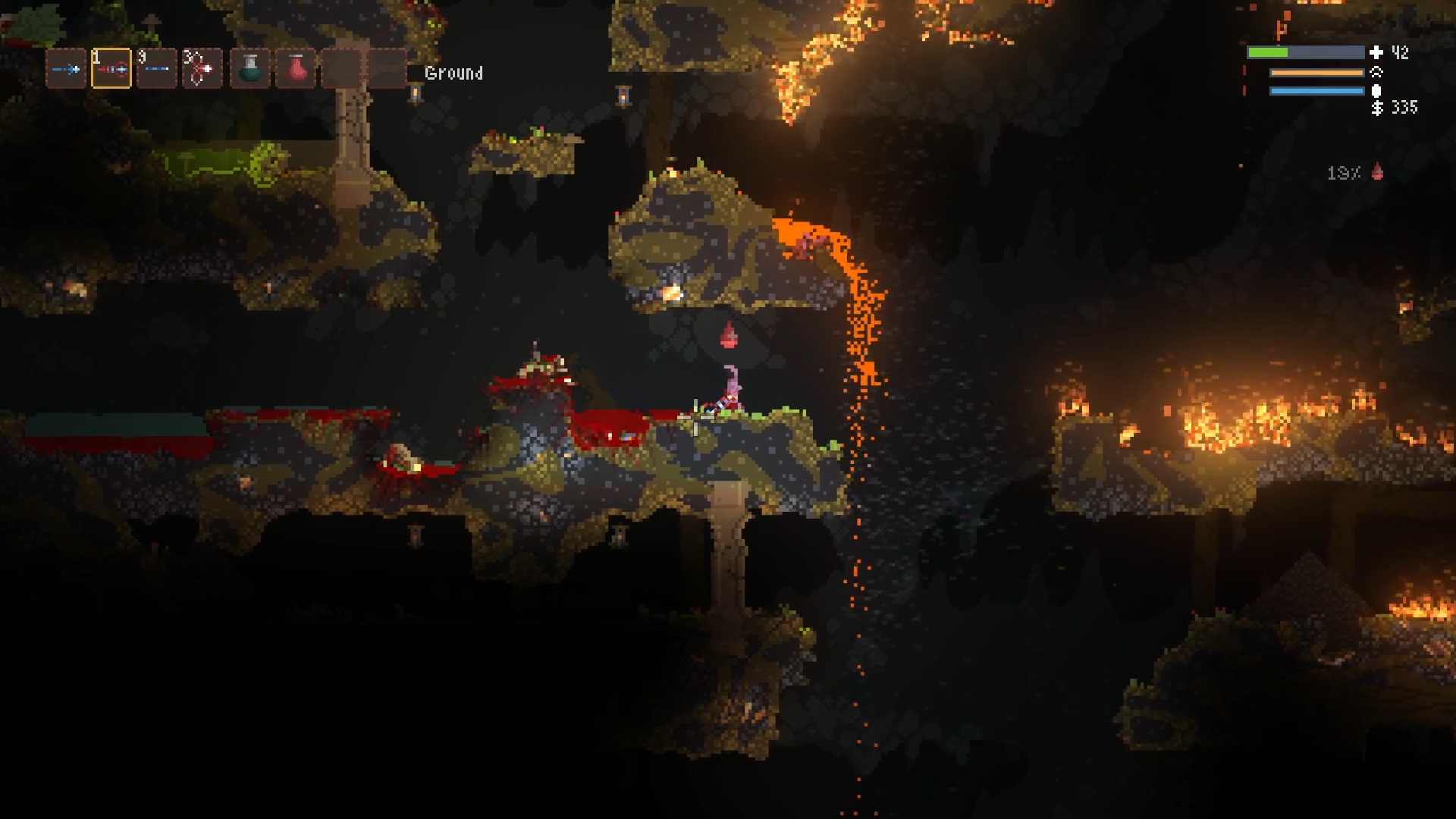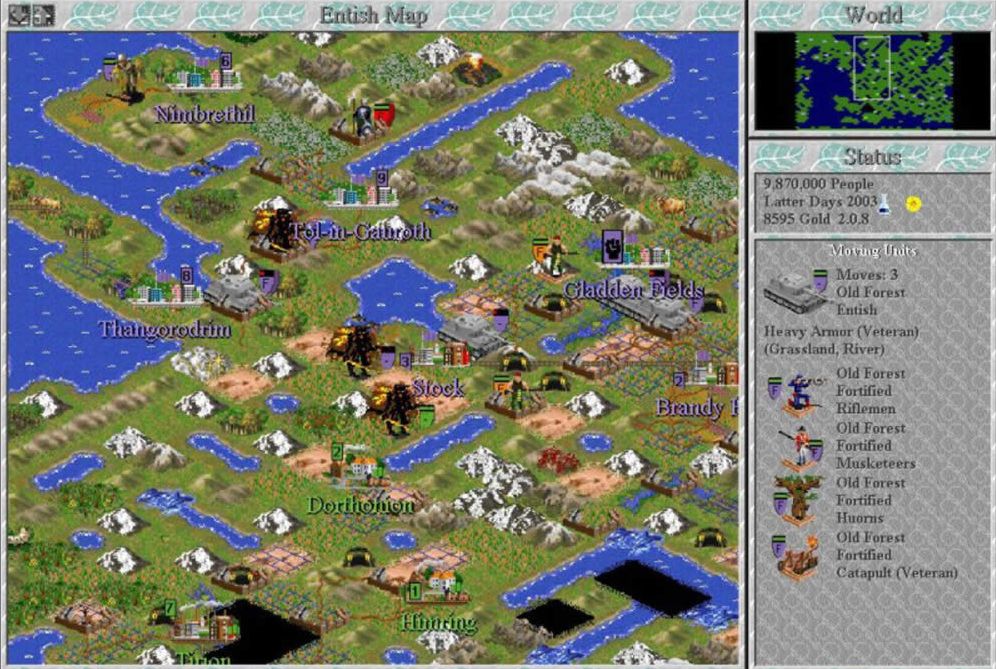When does technology become magic in games?
And those magnets, eh?
The usually remote and mysterious Nate visited the RPS treehouse on Monday, and almost immediately work ground to a halt. Why? Because Nate challenged us with a question: what bits of modern technology could a person from the past figure out the workings of, just by observing and having a good think for a while? This immediately led to the counter-question "when and where in the past?", which gobbled up another fifteen minutes. And then he asked how far back in history we, as modern people, would have to be sent before we could be confident of reaching the same understanding of all the technology that was around at the time. He asks a lot of questions, does Nate.
In terms of my own limits, I reckon most things invented after the late 1700s, when electricity and complex engines began creeping into play, would be beyond my capacity to intuit. Nate suggested his cut-off was around the mid-16th century, when most technology still worked via chunky mechanisms that human pattern recognition can decipher. Astrid initially suggested anything post-nuclear, but then climbed back as far as Nate, citing the barometer as a particular baffler. Matt thought a stone age knife would be beyond his ability to reproduce, slightly misunderstanding the exercise and dropping him to the bottom of the RPS post-apocalypse pecking order in the process (a knife, Matt? A bit of knapped stone? Bloody hell. Don't give Matt the rifle). All this of course led me to the inevitable PC games angle: which games have technology systems complex enough to confound new players who, let's face it, might as well be time travellers?
Minecraft

Early versions of Minecraft had no in-game recipe book, which simulated a sense of technological discovery as players experimented with different combinations of objects. Even now, thanks to its esoteric version of physics, and its collection of pseudo-electronic redstone devices, there's no end to the things someone can invent with no manual, provided they're willing to experiment. Should a brand new player somehow stumble across another player's contraption, they could conceivably figure out how each part of it worked given enough time - although making the component parts would present a whole new pile of guesswork. Factor in Minecraft's many mods, especially the tech-oriented ones like Feed the Beast or Tekkit, however, and it's a different story.
Cataclysm: Dark Days Ahead

Other games directly model the issue of intuitive understanding of technologies. I've been playing a lot of Cataclysm: Dark Days Ahead this weekend, and it actually simulates something like the divide between "things you could figure out" and "not a chance". Characters can use its extensive crafting system to make everything from togas to mining robots, with more "recipes" appearing as they become more practiced in the use of a building or fabrication skill. But there's a limit - some things you simply cannot puzzle out on your own, and need to read about in books. And if you're making vehicles, it's one thing to know how to make components, but you then need to put them together into something you can move and steer.
'Falling sand' games
On a more granular note (very literally), Astrid referred to Matt's praise of falling sand games. There, one can observe the differing behaviour of various chemicals, and eventually build rocket engines, circulatory systems - and even a nuclear reactor, in one case. In recent falling sand spelunker (and last month's Can't Stop Playing pick), Noita, players have even discovered alchemy. By mixing and messing about with the chemicals the game likes to leave lying around in huge vats, they've found ways to make a number of secret potions, capable of feats up to and including chrysopoeia: the transmutation of ordinary matter into gold.
Sid Meier's Civilization series
The whole discussion, by the way, made me think of an infant Sin, scoffing at a moment in Civilization when she discovered "scrolls of ancient wisdom" that unlocked the secrets of nuclear physics. This of course betrayed a great ignorance of science, and a self-serving view of civilisation as something that "advances" in a linear fashion. Sure, you wouldn't expect the blueprint for a nuclear reactor to be lying around Pythagoras' tent, but assuming we've worked out everything there is to know, with no room for previous or overlooked cultures to add to the mix, isn't a great look. It's arguably these sorts of assumptions that have held the 4X genre back, but that's a topic for another time.
X-Piratez

The assumption above is something that's partly deconstructed by research and progress in X-Piratez, one of my favourite games that never qualifies for any other lists, because it's a UFO: Enemy Unknown mod and everyone else is too scared to play it. In X-Piratez, you're running a gang of mutants in a distant, post-alien-conquest future. Earth's technology has been intentionally left to stagnate by its imperial alien overlords, and even the (mostly hostile) humans who have access to advanced machines and weapons don't understand how to replicate or improve on it. Some of the best 'advances' in the game are sci-fi adjustments to ancient weapons, and most research is about a totally ignorant society rediscovering basic principles. There's no way to tell (without looking up the tech tree anyway, like a coward) which of the hundreds of research items could lead to a massive leap in your understanding of the world. Your scientists could try to take apart a shotgun, or they could try to figure out what a diamond is and whether it's useful for something. And should you get lucky and recover some advanced alien weapon... it's useless to you. What are you gonna do, take apart a plasma rifle with your hunting knife? Nope. You've hit the threshold. Technology became magic.
I'm very fond of figuring games out as a I go - both in myself, and through my character, as a roleplaying exercise. But a game also needs to provide the tools to make experimentation less tedious than it often is. (Shipbuilding games, I'm looking at you here, by the way. No, thanks, I will not spend two hours laboriously placing 100 pieces of decking in the hope that it's the right shape). In the age of the wiki, it's all too easy for a community to take the fun out of discovery, too. But you could apply this whole discussion about deduction and intuition to way more than just technology systems. Indeed, it raises a meta-question that hovers over every developer: can we figure out your game's systems by poking them and seeing what happens? Or is your game too complex and esoteric, like... er... a flint knife?



